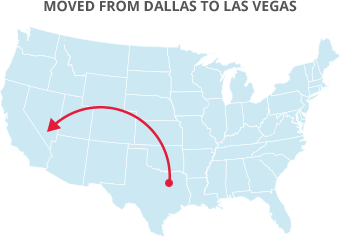


Pack
If you've got the finances for it and have made an attempt to do a complete job of purging, hiring movers is a great option. But if you're like most mortals and are on a bit of a budget and wreslting with corralling everything to move, doing it yourself might be a sensible choice. Professional packers will pack everything—they're not there to clean or to judge, packers go in and get the task accomplished. If something is in their range of vision, it will get wrapped and put in a box. However, if you are planning to pack yourself, get your moving supplies ready – boxes, tape guns and newsprint and start boxing as you purge.
This is a method that functions well for a lot of folks, as you can go ahead and put the stuff you are keeping in one box and be done with it, at the same time you're tossing things out and creating your donate/sell piles. If you start well ahead of moving day and allocate about two hours every day for decluttering and boxing, you should progress enough that you're able to manage the last few days without a complete breakdown.
Begin with closets, chests, and cabinets, since that's where a lot of folks store the things they do not even remember that they have. Save the attic, basement, and garage for weekends when you have got the rest of the family to lend a hand--let it be known that old hockey sticks and car parts only get saved if the owner is present to plead for their survival. Apportion a corner of the garage for donations; some non-profits will send a truck to pick up your giveaways and if it's all together that makes the pickup much easier.
If you're absolutely anxiety-ridden at the idea of going through everything in your home, consider appointing an estate liquidation company. They will come in, help you sort, and then, they can sell furniture, appliances, toys, and other stuff, too. Things that don’t make the sale cut are donated or pitched. If you are packing for your move yourself, there are companies that will come to your residence and haul away your trash for a charge, or by the truckload, if you have got a bunch of stuff.
Pay
Paying for moving costs is one item that most people forget to factor into the costs of the new house, although it could be as expensive as your closing costs. Unless you have got an employer who is coordinating your move for you, you need to have a good idea of what costs you're going to face with a move.
Call and talk with several movers to get an idea of what you'll be looking at for a full-service move versus one where you pack yourself and have the trucks come load, drive, and unload, and contrast that to what it would be to fully do it yourself and just rent a moving truck. If you opt to do your own packing, check out the cost of materials--boxes, tape, padding, and moving blankets among other things. When you're adding everything up, don't forget the time it will require to do your own boxing and loading, and the equipment and knowledge you will need for hefty or awkward furniture. If you have antiques, a pool table, or a large safe, can you move them without incident--what will your homeowner’s insurance cover in case you dent an antique clock? Movers are more costly, but they're insured, have the proper equipment and expertise, and are less likely to fall down the stairs while carrying something heavy than you.
Moving to a new home and creating a new life is exciting,exhilarating and can be a wonderful experience for your whole family. Watching the three P’s of your move – purge, pack and pay -- by bringing with you only the items you really use and love – setting aside time for packing for your move -- and budgeting for the process -- will help make those high expectations a reality.

